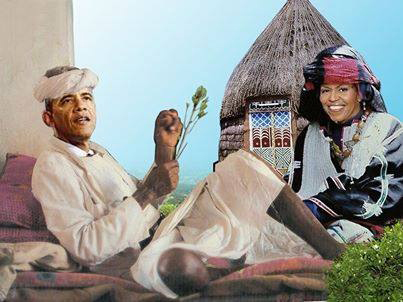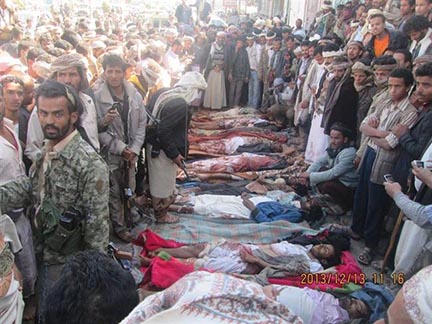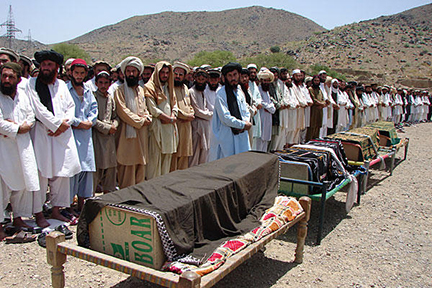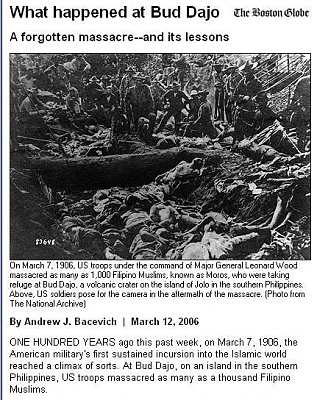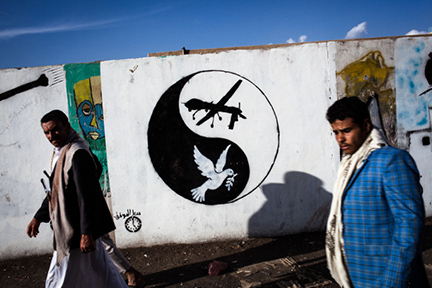
Men walk past anti-drone mural in Sanaa, Yemen, Nov. 25, 2013; photography by Juan Herrerro
Yemen’s New Ways of Protesting Drone Strikes: Graffiti and Poetry
by Tik Root, Time Magazine, November 30, 2013
An American drone hovers along a main thoroughfare in the Yemeni capital, Sana’a. Not a real drone, but rather a 7 foot-long rendition of an unmanned aircraft spray-painted near the top of a whitewashed city wall. Below it, a stenciled-on child is writing: “Why did you kill my family?†in blood-red English and Arabic script.
Painted by Yemeni artist Murad Subay, the Banksy-esque mural sits beside three others also admonishing the United States’ use of drones in Yemen to track and kill terrorism suspects. This drone art is part of Subay’s latest campaign, “12 Hoursâ€, which aims to raise awareness about twelve problems facing Yemen, including weapons proliferation, sectarianism, kidnapping and poverty. Drones are the fifth and arguably most striking “hour†yet completed.
“Graffiti in Yemen, or street art, is a new device to communicate with the people,†says Subay, 26, who after taking up street art two years ago in the wake of Yemen’s Arab Spring revolution has almost single-handedly sparked the growing Yemeni graffiti movement. “In one second, you can send a message.â€
The anti-drone chorus in Yemen has grown louder since the Obama Administration took office in 2009. All but one of the dozens of reported drone strikes in Yemen have been carried out since Obama came to office (although strikes here and in Pakistan have been more sporadic in recent months). Operations are rarely acknowledged by American officials but have nonetheless stirred a global debate about the strikes’ legality, morality and effectiveness. Continue reading Yin and Yang over Yemen’s Drones →
